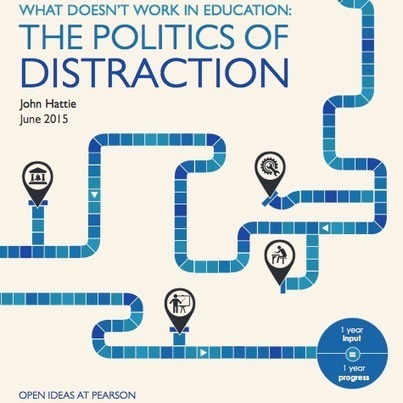Get Started for FREE
Sign up with Facebook Sign up with X
I don't have a Facebook or a X account
 Your new post is loading... Your new post is loading...
 Your new post is loading... Your new post is loading...

Deanna Dahlsad's curator insight,
October 15, 2013 3:59 PM
Robin Good of Content Curation World breaks the findings down thus: a) what people curate as relevant is not generally among the top ranked results according to popular metrics. Good stuff is not the same as what is considered normally popular or authoritative stuff. b) content curation allows a community to synchronize around specific issues and subjects (as anticipated by Clay Shirky) c) better and more appreciated curation is of the "structured" kind, providing additional info, meta-data and categorization. d) curators that are highly appreciated are characterized by consistent activity and by a variety of interests (or viewpoints under the same theme) that they are capable to cover. This is rather my experience; however, I usually explain it to my clients this way: a) You can be doing an excellent job, but never receive the recognition, popularity, or traffic you deserve.That doesn't mean you won't be appreciated greatly by the smaller group of people who do find/read your curated works. b) No matter the popularity of your curation, you can build and have conversations -- but remember, community cultivation not only requires additional time, but a different skill set. c) If you're going to do it, do it well. Use tools, such as labels and tags, and *always* provide context as well as proper credits and links. d) Consistent activity is nearly as important as showing some personality along with your knowledge. Your topic may be narrowly focused, but offer additional topics and information about you personally (not just professionally) so that people get a sense of you. 
Carmenne Kalyaniwala's curator insight,
October 16, 2013 2:17 AM
A research paper by Zhong, Shah, Sundaravadivelan and Sastry, King's college London, 2013 
AnneMarie Cunningham's curator insight,
October 17, 2013 8:28 AM
See the excellent notes from Robin Good below. Interesting to see more work emerging in this field. |
|











